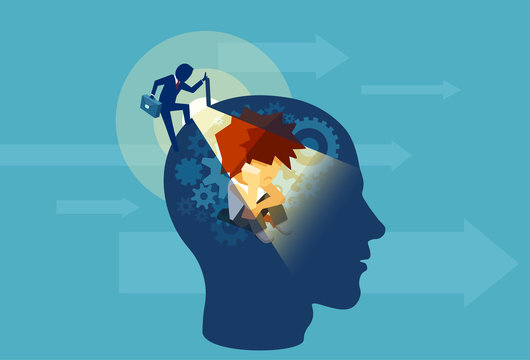Psychology is the scientific study of the mind and behavior. It is a multifaceted discipline that seeks to understand and explain the complexities of human thought, emotion, and actions. This field of study delves into the inner workings of the human mind, exploring how individuals perceive, think, feel, and interact with their environment and each other.
Key Components of Psychology:
- Understanding the Mind: Psychology aims to uncover the intricacies of cognitive processes, including memory, perception, problem-solving, and decision-making. It seeks to answer questions about how we process information, form beliefs, and construct our understanding of the world.
- Exploring Emotions: Emotions play a significant role in our lives, influencing our reactions and behaviors. Psychology investigates the nature of emotions, their origins, and how they impact our mental and physical well-being.
- Behavioral Analysis: Psychologists examine human behavior from various angles. This includes studying individual actions, group dynamics, social interactions, and the influence of external factors on behavior.
- Developmental Psychology: This subfield focuses on the study of human growth and development from infancy through adulthood. Researchers in this area seek to understand the physical, cognitive, emotional, and social changes that occur throughout the lifespan.
- Clinical and Counseling Psychology: Clinical psychologists work to diagnose and treat mental health disorders, while counseling psychologists help individuals cope with life’s challenges and make positive changes in their lives.
- Social Psychology: Social psychologists investigate how social influences and group dynamics affect human behavior and perception. They study topics such as conformity, prejudice, and interpersonal relationships.
- Neuroscience: This interdisciplinary field examines the biological basis of behavior and cognition, exploring how the brain and nervous system function to produce thoughts, emotions, and actions.
- Research Methods: Psychologists use a variety of research methods, including experiments, surveys, observations, and neuroimaging techniques, to gather data and test hypotheses. Statistical analysis is often employed to draw meaningful conclusions from the data.
Psychology has applications in numerous domains, including education, healthcare, business, sports, and law. It provides valuable insights into human behavior and mental processes, helping individuals and society better understand themselves and improve their well-being.
As a dynamic and evolving field, psychology continues to make significant contributions to our understanding of the human experience, offering insights into the workings of the mind and behavior that can be applied to improve individuals’ lives and society as a whole.

